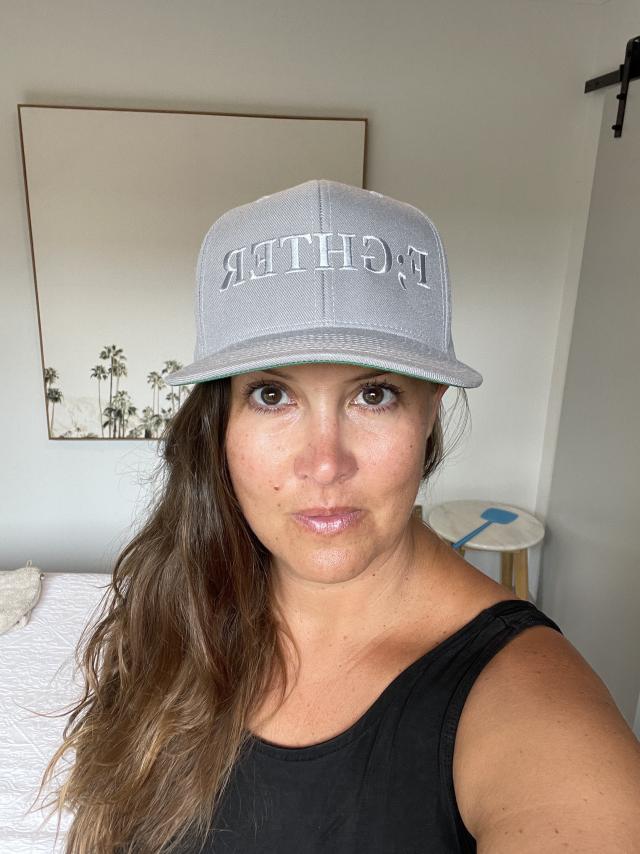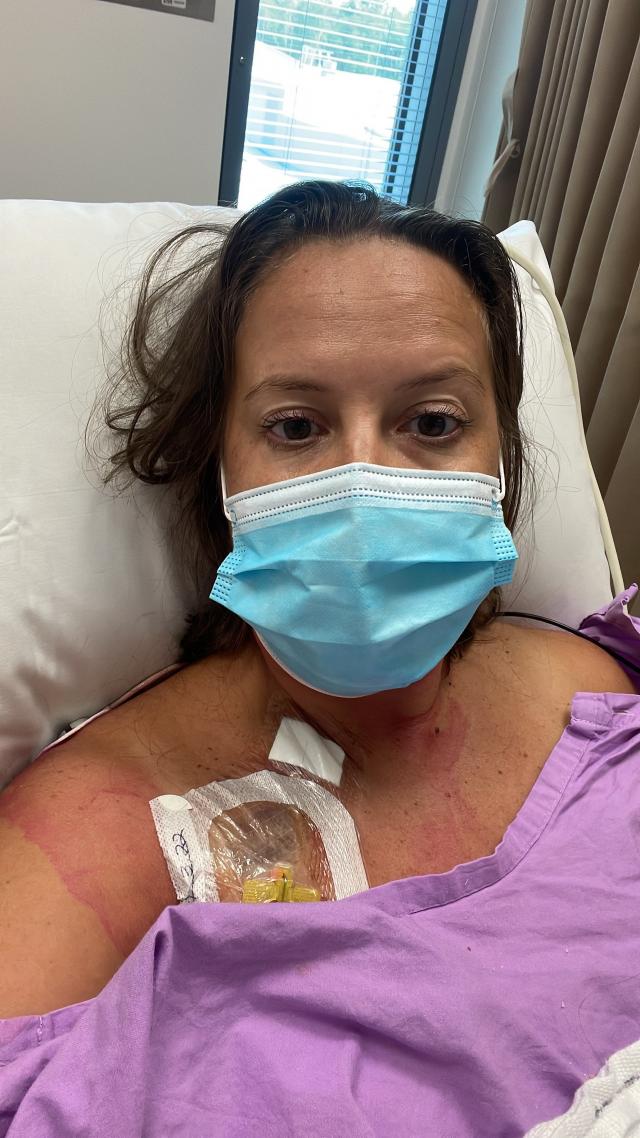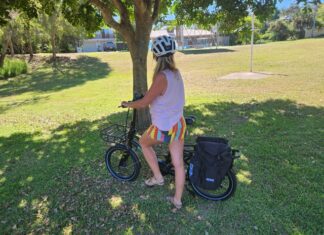Noosa resident Jo Yates was diagnosed with low-grade serous ovarian cancer in 2021 at age 42.
She’s sharing her story as part of a global campaign by research charity Cure Our Ovarian Cancer to raise awareness of symptoms in younger women for World Ovarian Cancer Day on 8 May.
Over 1600 women in Australia will receive a diagnosis of ovarian cancer this year.
According to Professor Anna DeFazio of the University of Sydney and the Westmead Institute for Medical Research, too many of these women have never even heard of ovarian cancer before facing the realisation that they now have a life-threatening disease.
“While the symptoms are subtle, women need to be aware and know that if they have a combination of these symptoms, and if they are persistent, that they should see their doctor,“ Professor DeFazio said.
“The symptoms include tummy pain, bloating, urinary urgency and changes in bowel habits.”
Jo said she was told her situation was pretty rare.
“Because the masses on both ovaries weren’t cancerous but when they did a biopsy after my hysterectomy they found cancerous cells elsewhere,“ she said.
She was diagnosed with ovarian borderline tumours which are a pre-cancerous condition.
At least 10 percent of people with advanced borderline tumours go on to develop low-grade serous ovarian cancer.
Borderline tumours are normally treated with just surgery, but because low-grade serous ovarian cancer was also found Jo’s doctors recommended chemotherapy.
“Dedicated research over the last decade has led to the recognition that ovarian cancer is not the same in every patient. There are different subtypes of ovarian cancer, and some are so different that they could almost be considered to be a different disease,“ Professor DeFazio said.
“Low-grade serous ovarian cancer can occur in young women and tends to not respond well to current ovarian cancer chemotherapy. It is challenging because even within low-grade serous ovarian cancer, there can be marked differences in the molecular tumour characteristics in one patient compared to the next.“
Though ovarian cancer isn’t detected by cervical screening, it was an irregular Pap smear which lead to the scans which found her ovarian tumours.
Jo said she was fit and healthy and enjoying an active lifestyle at the time.
“It was total luck,” she said.
“I’m eternally grateful to my doctor for taking it seriously as other doctors have said they wouldn’t have worried about it.
“I had no idea I had anything wrong with me. I hadn’t really heard of ovarian cancer and had no idea of the symptoms.”
She is coming to terms with the changes in her body.
“I feel confident in my medical team and for a good outcome but hate the way I look at the moment,“ Jo said.
Cure Our Ovarian Cancer founder Jane Ludemann said stories like Jo’s showed that ovarian cancer could affect women of any age.
On World Ovarian Cancer Day, they are hoping women will visit ovariancancerchecker.org to complete a short symptoms checker to understand if they could be at risk.










